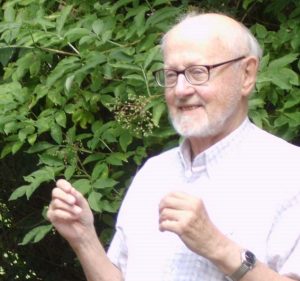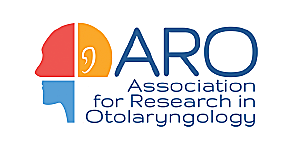 In memoriam Egbert de Boer
In memoriam Egbert de Boer
Professor Egbert de Boer passed away on August 12th at the age of 94 years. He was a passionate and highly talented researcher, a committed audiologist, an excellent teacher and an amiable colleague.
Egbert performed his early scientific work at the Wilhelmina Hospital in Amsterdam. Under the direction of his mentor Professor Jongkees, he did psychophysical experiments on pitch as well as electro-physiological experiments on distortion products in animals and received his Ph. D. degree in 1956. His thesis was entitled ‘On the ‘residue’ in hearing’. He went to work in a hospital clinic that led to an active interest in hearing loss. He became an audiologist of both the school for the hard-of-hearing and the school for the deaf.
In 1957 he had important postdoctoral experience working in Walter Rosenblith’s group in ‘communication biophysics’ at MIT. There he was appointed instructor in the department of physics, where he taught electronic circuit theory and information theory (subjects he admitted to not being an expert in at that time). None other than Nelson Kiang and Jerry Lettvin introduced him to cochlear electro-physiology.
Upon return to Amsterdam he resumed work in the ENT clinic to do audiology and research on hearing and balance. He became interested in mathematical correlation and correlation functions which eventually lead to his seminal paper on ‘reverse correlation’. When applied to the analysis of auditory neuron responses, the method showed that the cochlea behaves like a series of location dependent filters (de Boer and de Jongh, 1978). As he climbed the academic appointments ladder to Professor of Auditory Physics, he investigated the critical bandwidth. Another visit to the US brought him to Bell Labs where he worked in the laboratory of Manfred Schroeder on nonlinear systems.
Egbert made a move to the Academic Medical Center (AMC) in 1982, and throughout his career there worked on cochlear mechanics as a theoretical endeavor and leading to the lifelong publication of more than 170 papers. He is a founder of the Mechanics of Hearing Workshop. Retirement in 1996 opened the opportunity to analyze cochlear mechanics experimental data that he collected himself. This was accomplished by regular visits to the laboratory of Fred Nuttall, first at the Kresge Hearing Research Institute of the University of Michigan and then at the Oregon Hearing Research Center at the Oregon Health & Science University. The post-retirement part of his career accounted for nearly 50 of his total publications. A truly remarkable career achievement.
As an audiologist, he was associated with various schools for the hard of hearing and the deaf and saw the opportunity to achieve the utmost for the students of these schools. Thanks to his didactic gifts, he has also stimulated much innovation in clinical audiology. On his retirement he was appointed as a member of Merit of the Dutch Association of Audiology.
His post-retirement work was central to the symposium that Egbert presented in 2008 in honor of his 80th birthday. And in 2013 he was awarded the William and Christine Hartmann Prize in Auditory Neuroscience for his outstanding research achievements -- an international recognition of his contribution to science and a special honor, especially at this advanced age.
Besides being a very good skater, Egbert ran the Amsterdam Marathon after his 'retirement' at the age of 79 and he played the piano very creditably all his life. He also studied Italian for many years. Egbert was a water color painter and a student of Haiku and a composer of classical music. Perhaps he qualifies as a polymath and we remember him as a versatile, committed and inspiring person and a dear friend.
